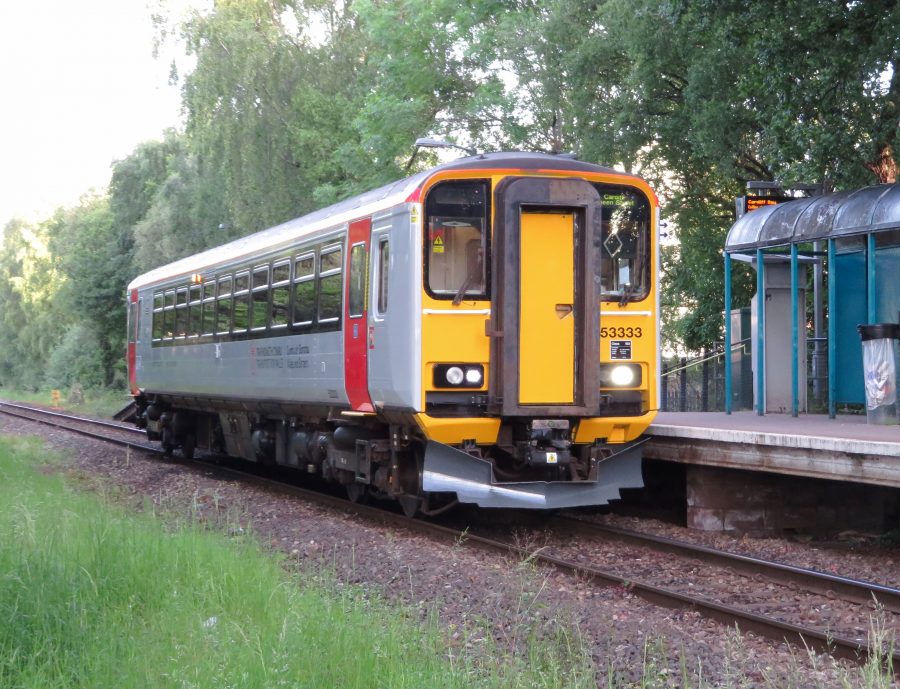LAST WEEK (Feb 16), the Rail, Maritime and Transport union (RMT) announced a further four days of national strike action on the rail network for March 16, 18, 30 and April 1.
The delayed and limited nature of industrial action confirms that the RMT national executive is continuing to stifle opposition to the 14 train operating companies (TOCs) in the Rail Delivery Group (RDG) and government operated rail infrastructure company, Network Rail.
Around 40,000 rail workers in the RMT have engaged in joint strike action since last June against the restructuring plans for the rail network demanded by the Conservative government, based on £2 billion worth of cuts.
The latest action drives a wedge between the 20,000 on board staff (including guards and conductors) and station staff at the TOCs, and around 20,000 signalling and maintenance workers at Network Rail.
The four days of action covers rail workers at the TOCs, while those at Network Rail will only participate on March 16 with further industrial action limited to an overtime ban.

Both groups of rail workers have received final offers of just 9 percent over two years (from 2022 to this year). Even the real terms pay cut—with most rail workers entering a fourth year of a pay freeze—is to be self-financed through the elimination of historically won rights and mass redundancies. Network Rail is proceeding with around 1,850 job cuts as part of its “Modernising Maintenance” plan of cutting scheduled maintenance by 50 per cent and an increase of unsocial hours by 30 percent.
RMT members voted by 63 percent in December to throw out the deal.
Stifling opposition is being directly presided over by RMT general secretary Mick Lynch.
The RDG confirmed its final offer on January 19 with the contents of its circulated to RMT members, while Lynch and the RMT executive delayed any official response, stating that it was “considering” a response.
Faced with an outpouring of opposition from rail workers over these delaying tactics, the RMT completed a consultation exercise which demonstrated the resistance to the bonfire of terms and conditions demanded. The RMT reported on February 10 that there was overwhelming opposition to what Lynch described belatedly as “dreadful offers.”
This was taken by the union leadership as a mandate for Lynch to seek further talks with the rail employers. The RMT delaying any confirmation of strike action, sitting on a renewed mandate from November of 92 percent and referring only to plans for a re-ballot for industrial action—as required by lawthree months ahead of time.
The RMT pushed back its confirmation of “next steps” in relation to any industrial action a further day, from when it was meant to be confirmed on February 16. This was after it was clear no concessions from the rail employers were forthcoming.
In the circular to members Lynch states, “The meeting with the RDG has now taken place, with discussion making no further progress and the RDG refusing to provide an improved offer.”
The urging by Lynch for re-opening talks was given short shrift by the Tory government, with Transport Secretary Mark Harper restating that the offers were final and confirming that plans for the reprivatisation of the rail network through the “Great British Railways” were to proceed. The RMT makes no reference to this, let alone opposition with Lynch stating the RDG “must take action in providing an adequate offer that rewards you for your hard work, with a substantial pay increase and no detrimental changes to your terms and conditions.”
Further underlining the RMT’s opposition to any direct mobilisation against the Sunak government, the staggered strike action has been organised so it does not coincide with strike action and protests by other workers—including hundreds of thousands of teachers and civil servants on March 15, the day of Chancellor’s Jeremy Hunt’s first full budget.
The RMT has justified this in the most cynical fashion by claiming the budget day action is a “powerful message of solidarity” to ensure striking workers can travel to London by train for the protests and “send a message to the government that they must fund our railway properly in order to create a resolution to this dispute.”
The message received by the Sunak government is that the RMT executive is on its knees with nothing under negotiation. While Lynch grandstands over opposing “dreadful offers”, the RDG has confirmed that its agenda had been drawn up in full consultation held with the RMT leader behind closed doors.
ASLEF General Secretary Mick Whelan is engaged in his own stifling operation after receiving a renewed strike mandate of 93 percent in December, with eight days of stoppages since last July.
The union executive rejected the 8 percent pay offer for two years from the RDG last month. Whelan described the RDG as a cartel set up by the government, while confirming that the union was still available for talks and insisting the employers get around the table. This was after Whelan declared to his members, “They want to rip up our terms and conditions in return for a real-terms pay cut!”
This underscores the necessity of rail workers forming rank-and-file committees to unify their struggles and take the dispute out of the hands of the union bureaucracy, which leaves the initiative with a Tory government intent on a new round of profit gouging by the TOCs and other private companies.


















